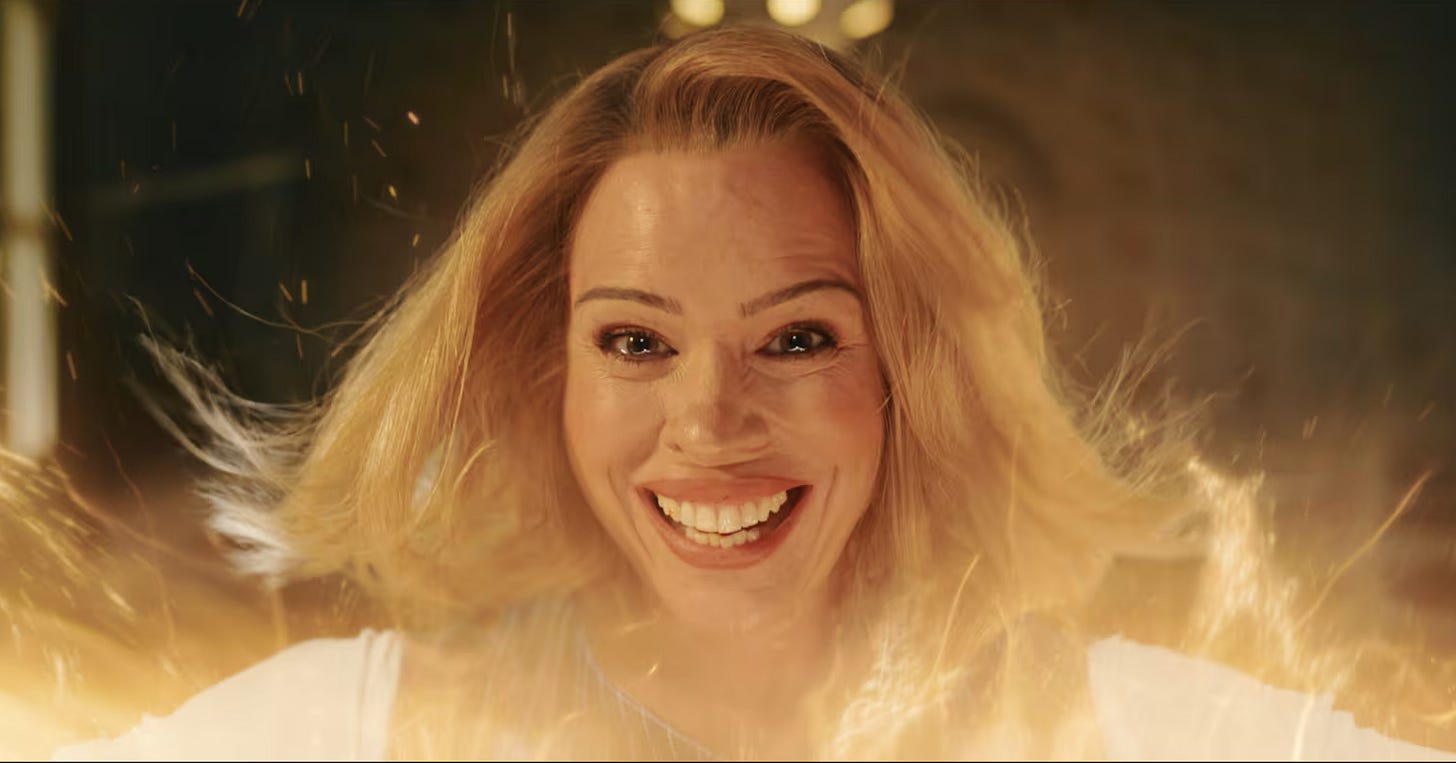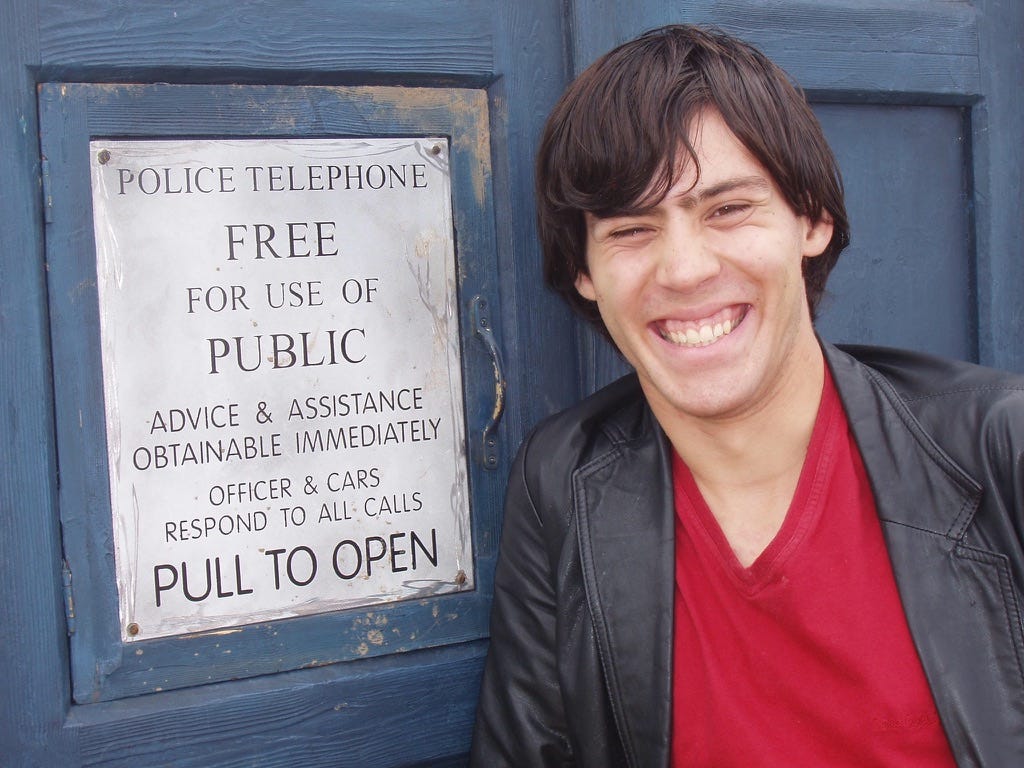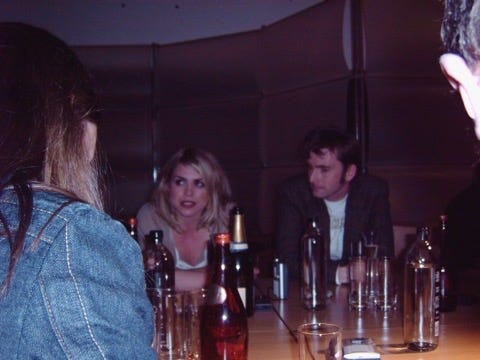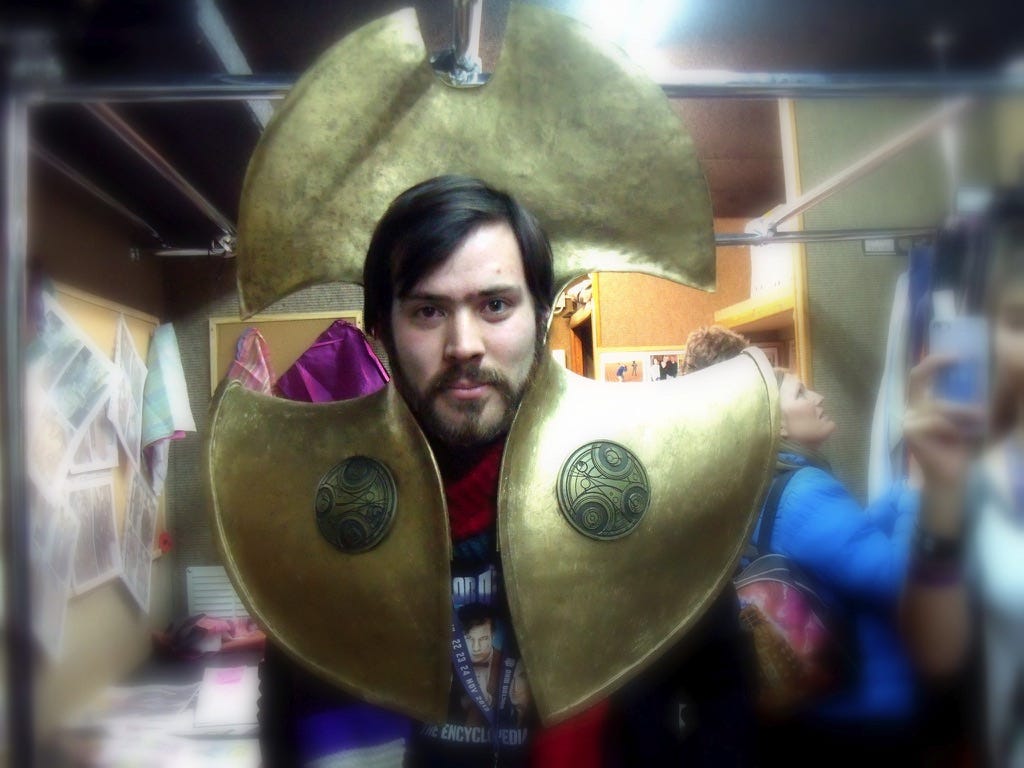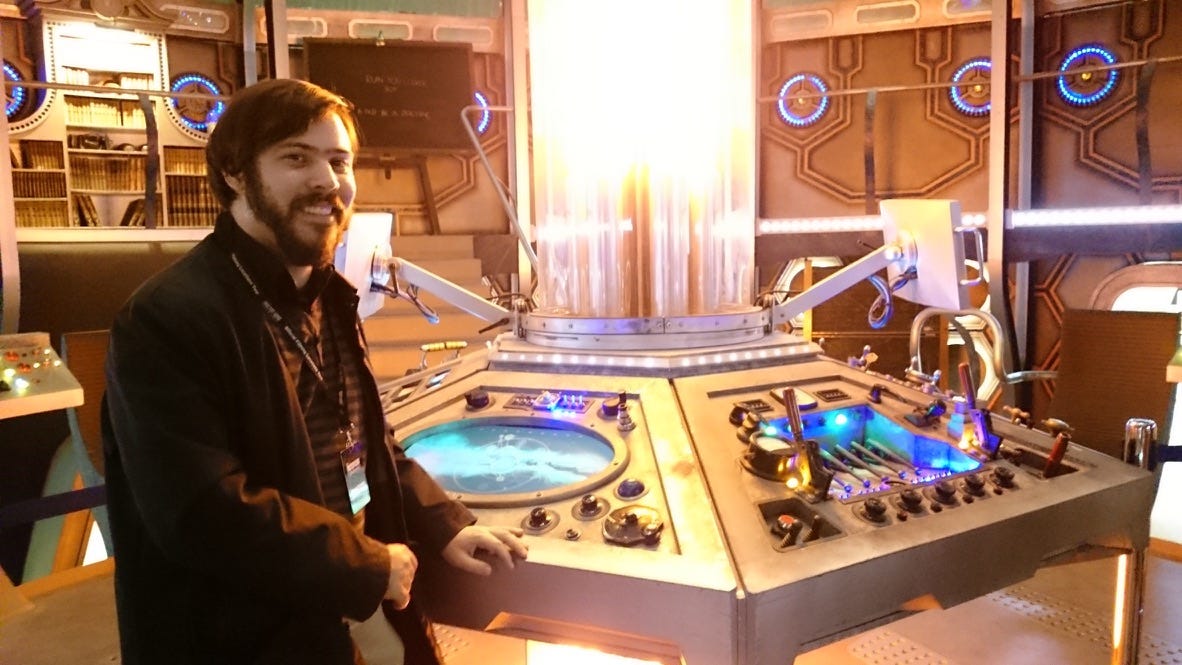Doctor Who and the Nostalgia Trap — Part One
20 years on from its triumphant return to TV, I explore the highs and lows of the show through to the present faltering reign of Russell T Davies 2.0
It’s been twenty years since Doctor Who returned to our screens with Christopher Eccleston and Billie Piper starring, and renowned TV scriptwriter Russell T Davies in the showrunner’s seat. I was a fan of Doctor Who already but fell in love with the new version of the show.
Now, almost a generation on, Russell T Davies is back in charge of the show, and has been bringing back the old favourites – first David Tennant and Catherine Tate for some specials, and now making the surprise regeneration of Ncuti Gatwa’s Doctor into past companion actor Billie Piper (apparently, at least, not excluding fan theories and potential narrative shenanigans!)
Whatever RTD has planned, it’s hard not to see this as a sign of creative exhaustion, the Whoniverse equivalent of Marvel’s gambit of casting Robert Downey Jr as Doctor Doom. It’s not that Piper or Downey aren’t talented stars, but it shows a backward-looking obsession with the past that indicates a franchise in crisis and an instinct to return to past glories.
It’s not just me that feels this way — what I thought was a fairly offhand comment I made on this on the official Doctor Who Facebook page garnered over 1,800 likes from fellow-fans (if you just found my Substack via that comment, hello!)
Beyond that, who is this show even for now?
On the one hand, it seems to be pitching itself for a younger, progressively-minded audience (or is “too woke”, if you don’t like its politics — more on that hot potato later.)
On the other, it’s stuffing itself full of deep-cut Doctor Who lore like the Rani, Omega and now regenerating the Doctor into Piper to remind the audience of its glory days 20 years ago.
I’d had high hopes that Russell T Davies’ return would reinvigorate the show, and while I feel the overall quality of the writing has improved somewhat over previous incumbent Chris Chibnall, RTD’s overall story arcs and finales have fallen a long way short, and it seems to have failed to reignite interest in the show as I hoped I would.
Doctor Who faces a very challenging TV industry context with the collapse of the streaming bubble and fragmentation of audiences in the face of TikTok and YouTube dragging away eyeballs from traditional TV. So there are big external threats to the show — but there have been genuine quality issues too, running back a long way.
Let’s head on a tour of the last 20 years of modern Who and my journey with it as a fan, and see if we can take a peek into the Time Vortex to guess at what’s ahead…
This is going to be a long one, so be warned, I’ll be breaking it up into a couple of instalments!
Me, Who and RTD 1.0
Doctor Who has always been a big part of my imaginative life, ever since I was growing up in the wilderness years for the show of the 1990s, when it was off the air. My exposure to the cult science fiction classic came through Target novelisations, New Adventures / Eighth Doctor Adventures novels borrowed from my local library, through TV repeats, and eventually through collecting VHSs, DVDs and the myriad of spin-off comics, novels and audio dramas that flourished creatively.
So it was with surprise and delight in 2003 that I heard the news announced one September morning on BBC Radio 4 that the show would be returning, with Russell T Davies acting as showrunner and it being made by BBC Wales in Cardiff. I was about to head to Cardiff for university, and it felt like the stars were aligning for me as a fan!
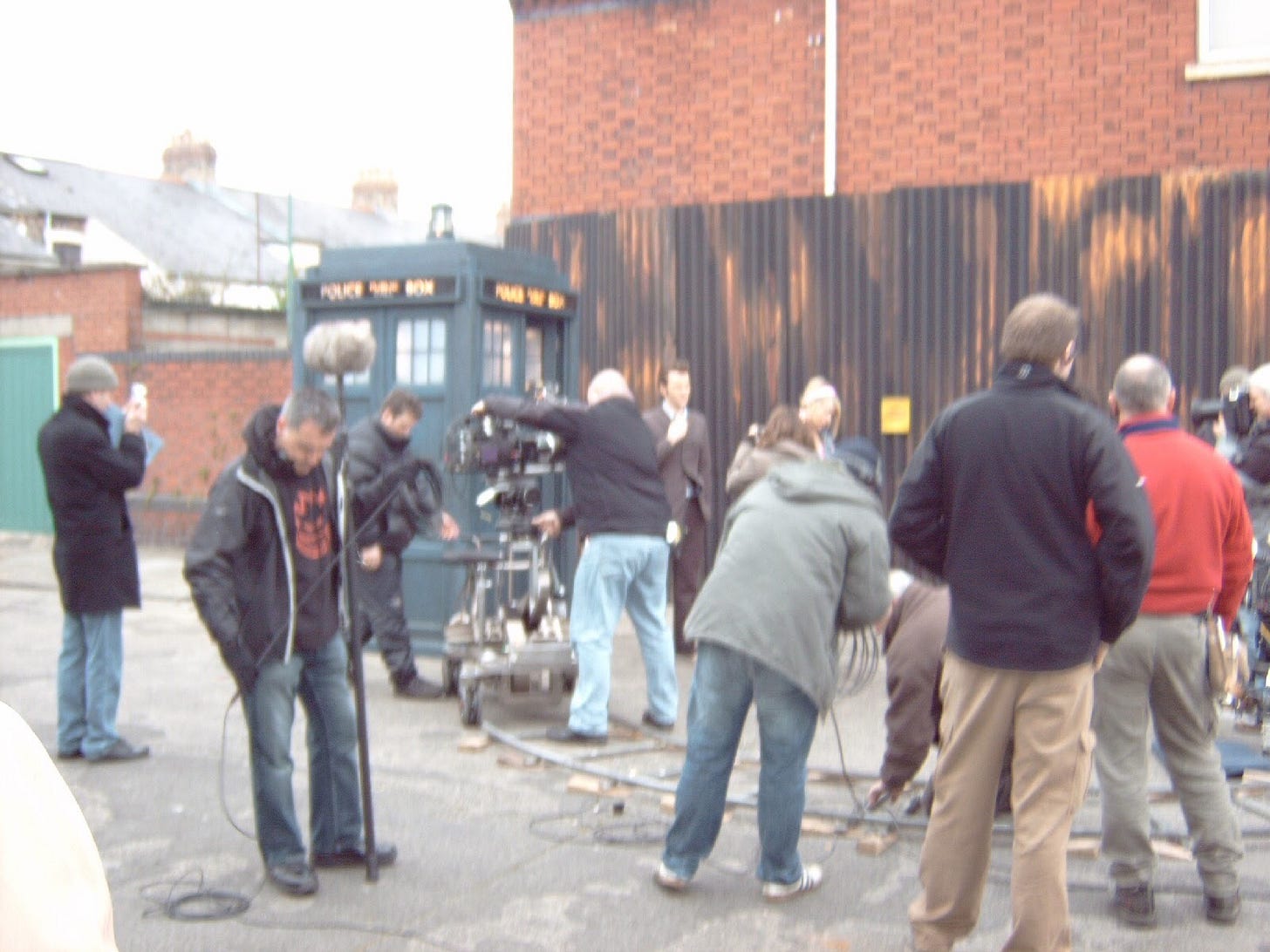
I remember the excitement back in 2005 of that first new season with Christopher Eccleston and Billie Piper as the Doctor and Rose. Defying expectations, it caught the zeitgeist and was a genuine hit.
Much of that was down to the skill of RTD’s writing. Although there were some tonal inconsistencies to iron out early on, the show managed to combine broad sci-fi adventure for a family audience with a genuine emotional groundedness, with a new focus on Rose as the companion and her family life and relationships. It was a revelation.
At last, it felt as if the potential of this show that I’d always loved was being fully realised and recognised by the masses.
(By the way, RTD had previously worked with Eccleston in The Second Coming, a Philip Pullman-like New Atheism tinged take on the return of Christ as a northern English bloke, which did nothing to lessen the quasi-messianic overtones of RTD’s take on the Doctor, which I’ve written about in various articles including The Romantic Rationalism of Doctor Who, Doctor Who at 60: The spiritual themes behind the sci-fi phenomenon, and Doctor Who and the Human Longing for A Messiah.)
A fan on the frontline
Over the coming years, I thrilled with Christopher Eccleston and David Tennant as the Doctor, as the show built in popularity. I saw the show being filmed around Cardiff and its environs, attending the series 2 press launch in Cardiff Bay and interviewing Russell T Davies for the student newspaper.
In 2008, I started a podcast offering fan commentaries on the show that grew into Impossible Podcasts (the archive is still available if you want to hear my complaints about RTD1’s finales at the time!) Along with my gang of fan friends, we often quibbled about the broader strokes of RTD’s writing — especially the over-the-top finales and reset buttons — but set within a context of genuine joy and appreciation.
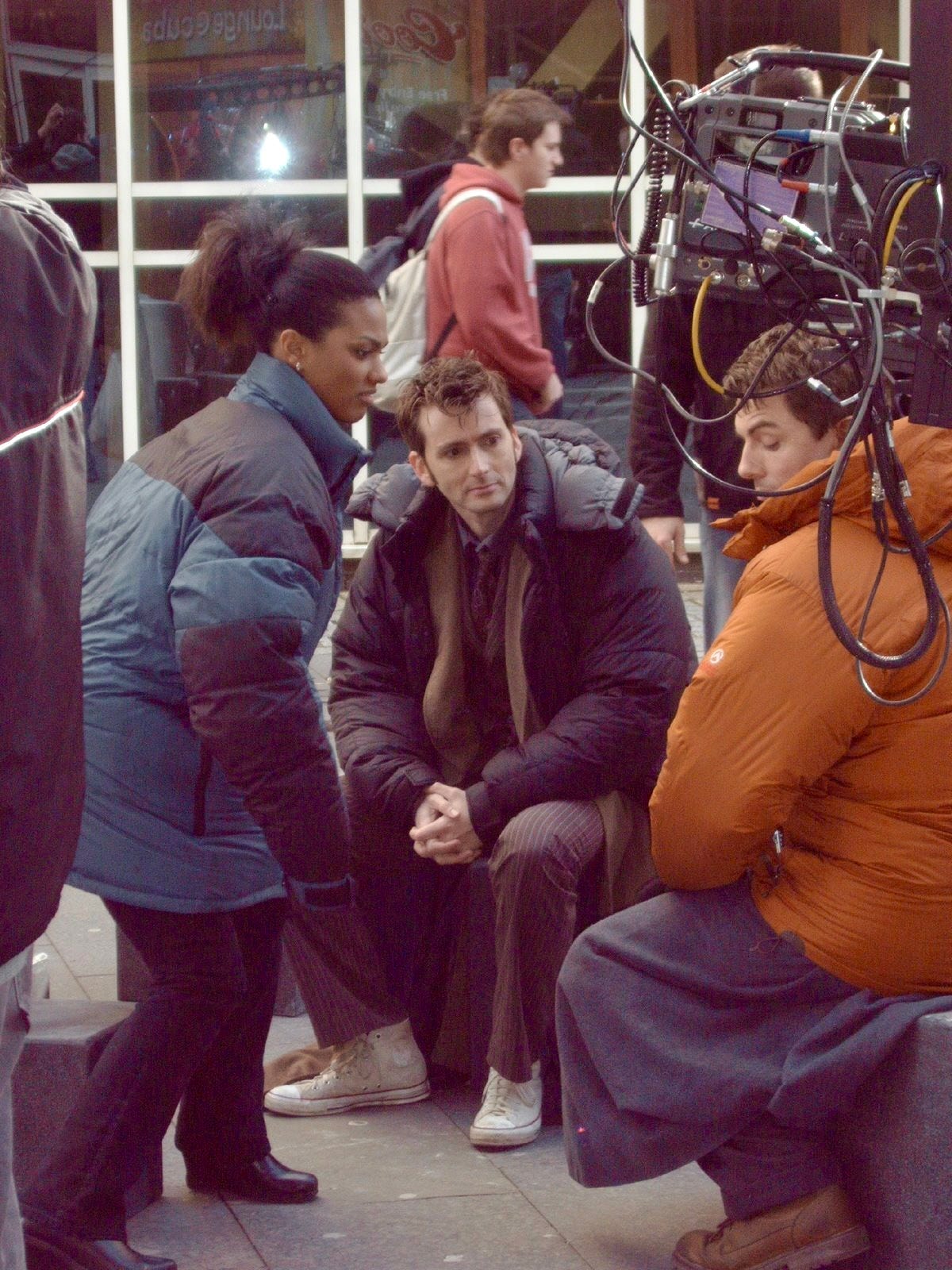
Steven Moffat, Matt Smith and beyond
My interest ran high into my late twenties, with the transition to Steven Moffat as showrunner, with Matt Smith taking on the lead role. This for me was the peak of the modern show.
Moffat is to my mind the best writer for Doctor Who of all time (maybe Robert Holmes from the classic series could also be in contention, but for sheer volume and variety Moffat wins out). He combines the emotional literacy of Russell T Davies at his best with sharper plotting and a greater imaginative range. He sometimes has a weakness for ‘clever’ writing over effective writing (his efforts on Sherlock to constantly outwit the audience suffered from this), but he’s delivered some of the most iconic and memorable Doctor Who monsters and characters, from the Weeping Angels to River Song.
He also displayed much more formal variation in his time as showrunner. RTD1.0 had a fairly standard template for his seasons, but Moffat reinvented his approach both structurally and tonally several times over, from the “dark fairytale” of early Matt Smith to the “movie every week” of series 7A, and the different iterations of Capaldi’s Twelfth Doctor as weary cynic to rock’n’roll dad to eccentric professor.
The 50th anniversary of the show was a particular high point of the show’s popularity and of my own fan involvement. I attended the massive Doctor Who Celebration convention in London and watched The Day of the Doctor in a cinema-full of fans. (There was actually a technical issue at the Odeon which meant the 3D didn’t work and the simulcast was delayed, causing a near-riot, though thankfully we were able to watch it in the end!)
The anniversary special was wildly and improbably successful, acting as a satisfying multi-Doctor anniversary celebration, being a culmination of the Time War arc and setting up new direction and storylines. Beneath the camp, RTD’s Doctor Who is actually quite a dark universe: in his version of the Time War, the Doctor had made the impossible choice to wipe out both Daleks and Time Lords alike. The Doctor is a hero who tries his best but sometimes faces impossible odds in which he can only choose the lesser evil.
Moffat gave the Doctor the opportunity to redeem his choice, saving Gallifrey so it only appeared to have disappeared, a more romantic vision of the Doctor as a fairytale hero, where everyone lives. This tension between realism and romanticism is central to Doctor Who and Moffat managed to tie it all together with brilliant elegance.
Waning interest
As with many other fans, my enthusiasm began to wane in the Capaldi years. Moffat was a clever writer and wrote many of the show’s best episodes, and Peter Capaldi was a compelling Doctor. But there was something darker and moodier about the Capaldi era that I found less appealing, and less welcoming to kids. But even though it was less to my taste, there was no denying it was intelligent and well-crafted.
There was, however, an increasing tendency to rely on familiarity with the show’s lore — series 9 opener The Magician’s Apprentice, for example, had an opening scene which relied on the audience recognising the name ‘Davros’ as an enemy of the Doctor, as Twelve ran across a young version of the villain on the battlefield of Skaro, home planet of the Daleks. Fun if you’re a fan, but potentially off-putting to new viewers.
With my adult responsibilities growing, and without the commitment of running a Doctor Who podcast to keep me anchored, I still watched the show but drifted away from active involvement with fandom.
But Doctor Who was facing a problem similar to that posed by Tony Gilroy’s Andor to the Star Wars franchise. With RTD and Moffat, two very talented and well-respected screenwriters had set the bar high in terms of writing quality: far higher than your average BBC scriptwriter is capable of reliably producing as part of an ongoing franchise. So the question of succession was an incredibly challenging one.
Would the next showrunner be able to keep up the quality, and bring in a fresh generation of fans? And as the streaming wars began to heat up, would Doctor Who be able to hold its own?
Spoiler warning: no, it wouldn’t.
That’s enough for now, I think! Further drift was still to come with the Chibnall era – and then RTD2 would pull me back in. But has it all been in vain for the future of the show? Watch out for part two!



